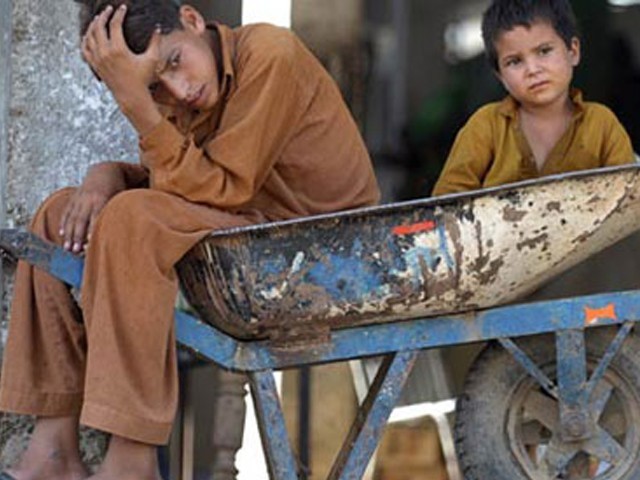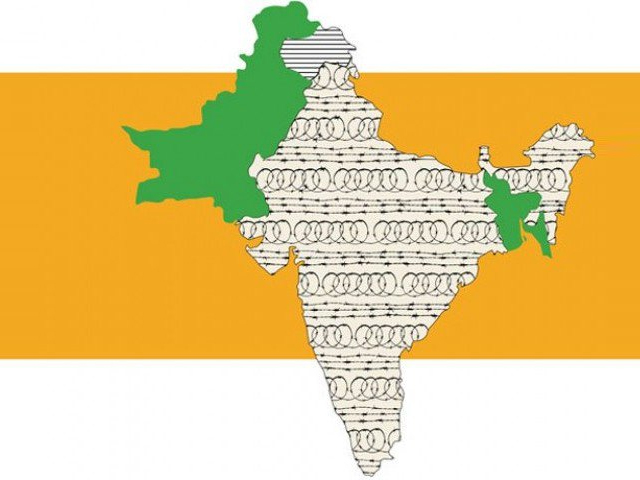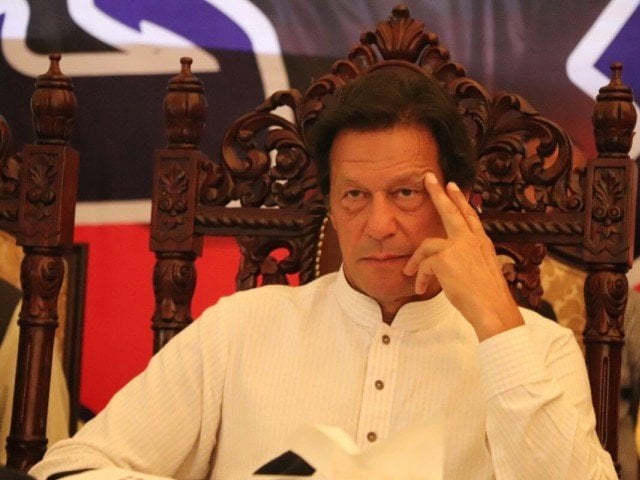
In Pakistan, child labour is something that is considered normal and the laws dealing with it are very lax. PHOTO: AFP.
Do you think you have done enough to end child labour, Murad Ali Shah?
The law allows children between 14 and 18 to work in non-hazardous occupations for three hours daily.
Around 20 years ago, a relative of mine got into serious trouble when a European customer of his visiting Pakistan saw some children working in his factory. The foreigner immediately cancelled all orders and my relative had to wind up his business to avoid bankruptcy.
In Pakistan, child labour is something that is considered normal and the laws dealing with it are very lax. In developed countries, forcing a child to work can result in severe penalties and imprisonment. But in Pakistan, even today, a child can be “sold” to work as domestic help and the punishment for this is a mere fine of Rs250, if the case is ever reported to the authorities that is.
Recently, the case of 10-year-old Tayyaba made headlines after she was reportedly tortured by her employers. Her father had sold her to a judge, and the girl was being made to do household work for him and his family. The kid was reportedly treated like a slave, and beaten up if she failed to do the work given to her – like washing dishes and clothes, sweeping the floor and other menial jobs). Evidently, the judge (like millions of other Pakistanis) did not know that even children of poor Pakistanis are supposed to attend school and should not be forced to work. But ignorance of the law is no excuse.
The reason why people sell their children is that they have too many kids. They don’t limit the number of offspring because they believe that practicing birth control is a heinous sin – they have heard this a million times from the preachers in their mosques). Having many children and then selling them also provides additional income. Sometimes, they need the money to pay off debts, whilst other times, they need it to feed their families or arrange marriages for their older kids.
After Tayyaba’s case made rounds on social media and media organisations started covering the issue, the Supreme Court of Pakistan decided to finally take action. Resultantly, the Sindh government recently passed a law prohibiting child labour. The punishment for forcing children to work will now be six months’ imprisonment or a fine of Rs50, 000 (or both). The definition of child labour is somewhat vague and ambiguous. According to this law, a boy or girl under the age of 14 is a child and should not be made to work at all.
However, the proposed law does not ban children between 14 and 18 from working, except in hazardous occupations. On paper, the state is supposed to provide free education to children, but of course in Sindh, this is not possible since most of the education budget is siphoned away to foreign bank accounts and the rest is paid to “ghost” teachers who exist only on paper. The law will allow children between 14 and 18 (defined as adolescents) to work in non-hazardous occupations for three hours daily, but considering that adolescents also go to schools and colleges, they will not get time to study and play.
Thereby, I request Sindh Chief Minister Murad Ali Shah to make the law on child labour more stringent. The definition of a child should include those who are at least younger than 16 (if not 18), and the fine should be increased to Rs200, 000 together with two years’ imprisonment.
And to see if the elite themselves follow the law, media representatives should be allowed to visit factories and agricultural land owned by our assembly members to find out if children are being forced to work there. But will your colleagues ever agree to such investigations, Mr Shah? We have heard that agricultural workers are not being paid the minimum salary of Rs13,000 per month fixed by your government, but has any labour department or media representative ever been allowed to go to the fields to find out if workers are paid minimum salary?
So, Mr Shah, you can be sure that it will be a long time before child labour is completely eliminated in the country. And for this, you and your ministers will be held responsible, but knowing that our feudal lords regard poor people as animals, I doubt if it will cause them to lose any sleep over it.




COMMENTS (7)
Comments are moderated and generally will be posted if they are on-topic and not abusive.
For more information, please see our Comments FAQ